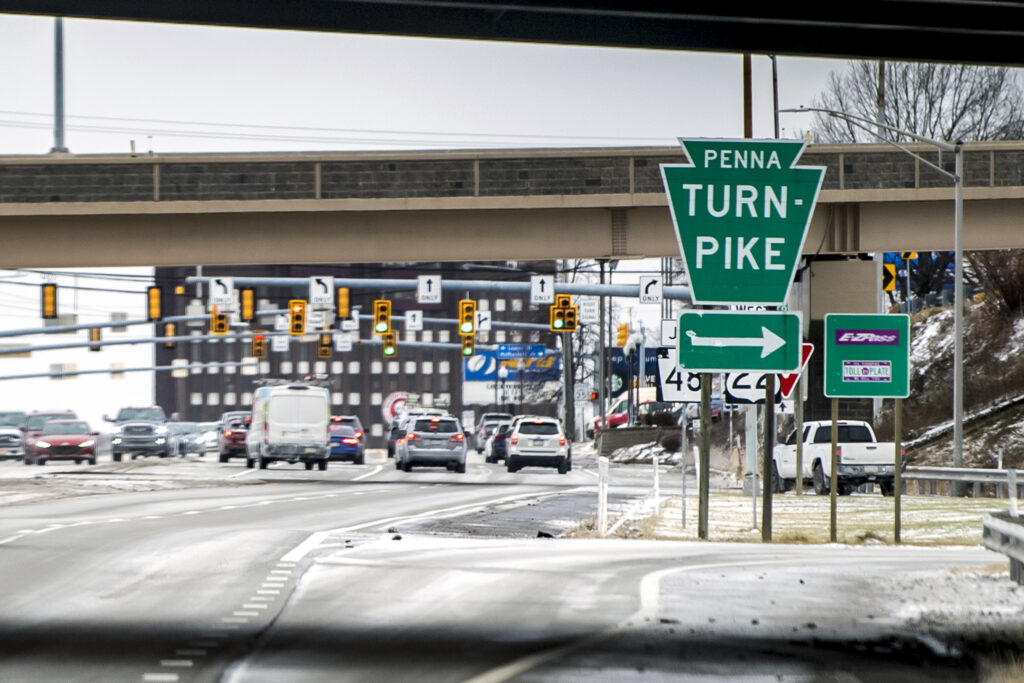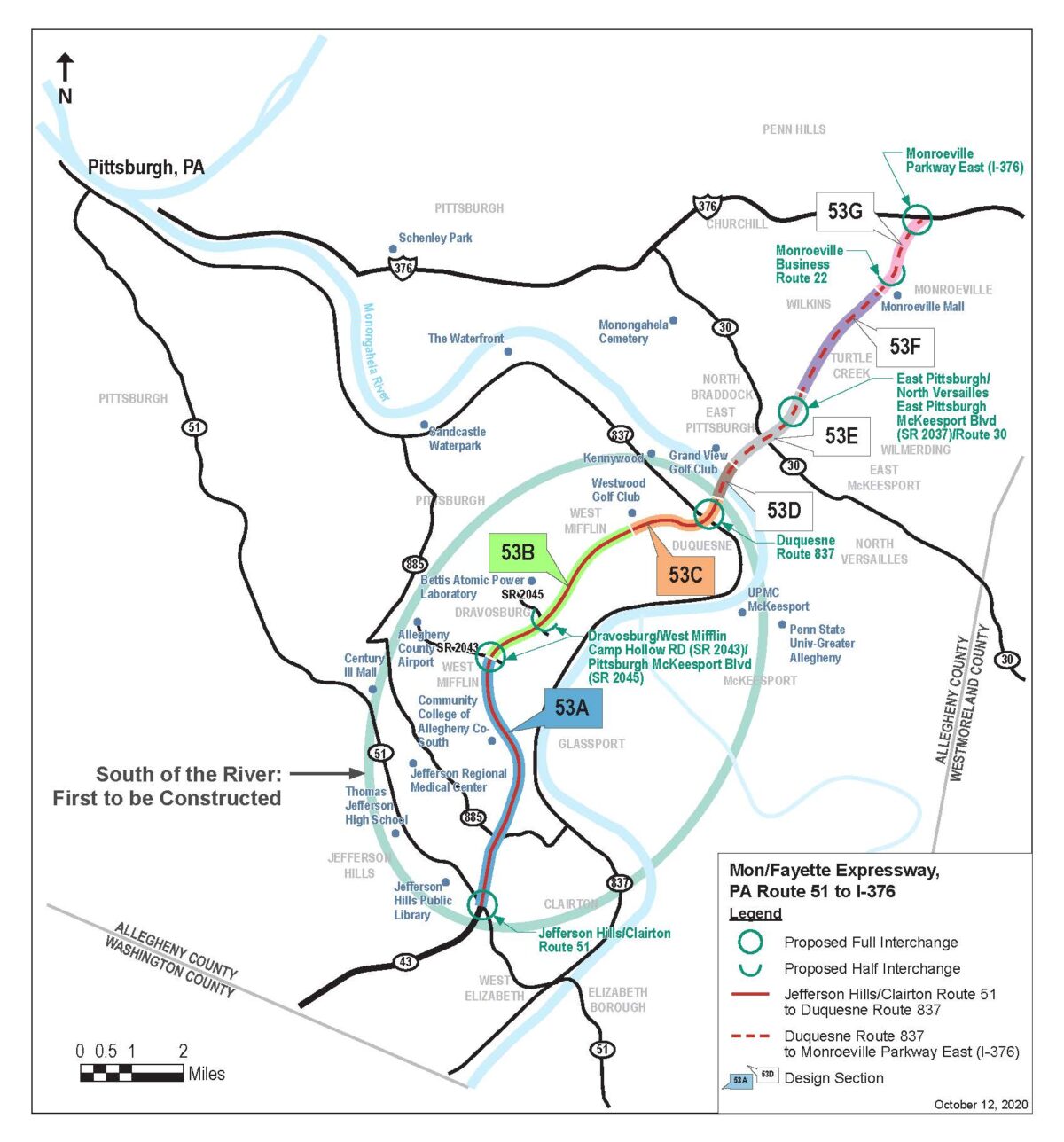More than 50 years ago, prospective profiteers bought up as much vacant property as they could find in eastern suburbs of Pittsburgh such as Braddock after state highway officials began talking about plans for the Mon-Fayette Expressway.
At that time, the proposed highway was to run from Interstate 68 in Cheat Lake, W. Va., through the Monongahela Valley and into Downtown Pittsburgh. It was considered a key project to save the stalled steel industry by improving the transport of supplies and finished steel.
But decades of funding problems and political squabbles have resulted in the highway extending only 54 miles, with the most recently completed section opening in Jefferson Hills in 2012. As a result of opposition from then-Pittsburgh Mayor Tom Murphy, as well as hospitals and universities in Oakland, the highway was redesigned and no longer will run into the city — eliminating any bounty for property the state would have needed in Braddock.
In its latest redesign to reduce costs, the highway will run from Route 51 in Jefferson Hills to the Parkway East in Monroeville. The Pennsylvania Turnpike Commission, which is required under state law to build the toll road, will begin construction in 2023 on the southern section of the highway from Jefferson Hills to Duquesne.
The first construction contract will cover 3.1 miles from Route 51 to Coal Valley Road in West Mifflin. The agency is sorting through five bids received Dec. 21 that range from $214 million to $265 million, and is expected to award the contract this month.
The move to begin construction on the new highway comes barely a year after the turnpike finished construction on the Southern Beltway, the 13.1-mile toll road that runs from Interstate 79 to Route 22 along the Allegheny-Washington County border near Pittsburgh International Airport.
“It’s exciting times,” said Brad Heigel, the turnpike’s chief engineer. “It’s a testimony to my staff that we’re able to pivot so quickly and be ready to move ahead with the next project already.”
The agency has been acquiring property in the Mon Valley for several years and working with utility companies and railroads on more than $50 million of relocation projects to clear the path for the new highway. That’s different from the beltway project, which involved removing brush and trees, sealing old coal mines and clearing old oil wells.
“The big difference here is the utilities,” Heigel said, noting that Duquesne Light has major power lines and substations throughout the valley to serve the heavy industries that once proliferated there. “It’s a real spaghetti of utilities, and some of them had to be moved.”

Preliminary work had been scheduled last year on Commonwealth Boulevard in West Mifflin to relocate roads in preparation for a later part of the project but was delayed by a dispute in acquiring the last piece of property.
The 8 miles of construction will be divided into seven contracts to allow work to be done by multiple contractors at the same time. The goal is to build the highway from south to north and open each section as it is completed, with the first section expected to be finished in 2026. The second contract should be awarded later in 2023 and the full southern section completed by 2028.
Heigel said continuing high inflation is a concern. The project had been forecast to cost about $800 million, but after bids came in last year about 30% higher than expected on other turnpike projects, the agency increased the estimate for the southern section of the Mon-Fayette project to $920 million.
Because the project is mandated by the Legislature, the funds come from the turnpike’s share of the state’s oil franchise tax, and projects are built as money is available. Proceeds from that tax took a severe hit from reduced driving during the pandemic.
“We just went through another round of analysis in that fund,” Heigel said. “We feel very confident that we will have the funds for the southern section or we wouldn’t be starting yet.”
Design for the more expensive northern section to the Parkway East, which would include a new bridge across the Monongahela River at Duquesne, remains on hold and may not begin until the next decade.
“I wouldn’t want to spend the money to begin design until we are sure we have the money to build it,” Heigel said.
Ed covers transportation at the Pittsburgh Post-Gazette, but he's currently on strike. Email him at eblazina@unionprogress.com.



